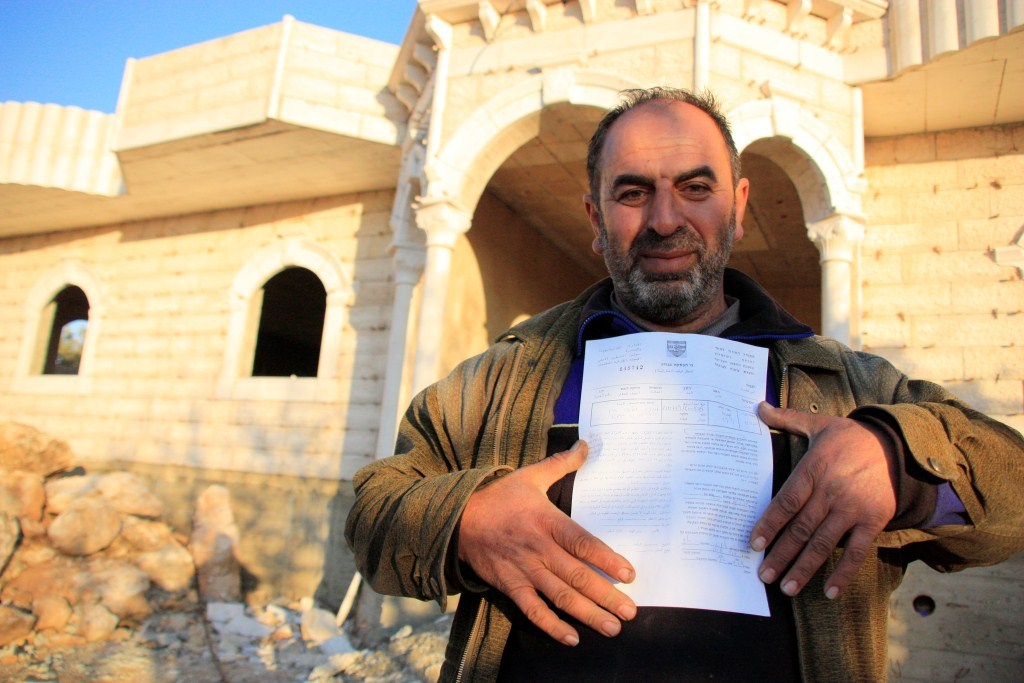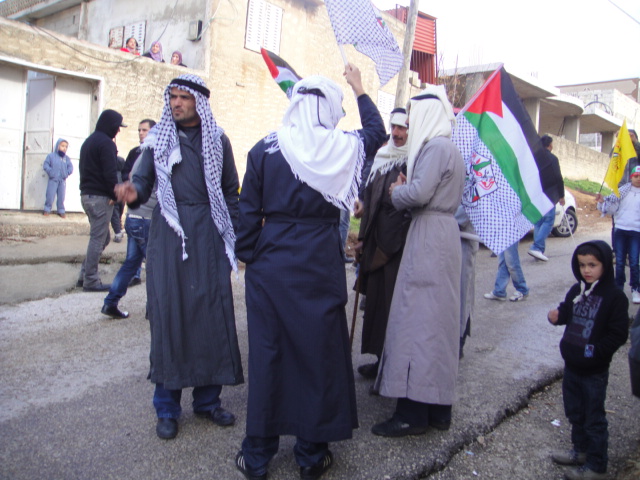-
Eight homes ordered to be demolished in Khalit Al-Dar
by Jack English 17 January 2012 | International Solidarity Movement, West Bank On January 4th, an Israeli military commander served 8 demolition orders in the town of Khalit Al-Dar, just south of the city of Al-Khalil, also known as Hebron. The reason given for issuing demolition orders to the families is that they have built […]
-
Israeli army complicit in settler car-burning
by Sarah 17 January 2012 | International Solidarity Movement, West Bank On Sunday, the 16th of January, at approximately 2 AM, about fifty settlers, accompanied by Israeli soldiers, entered the Abu Haikal family’s field in the neighborhood of Tel Rumeideh in Hebron. After throwing stones at the family’s house, they savagely burnt the car of […]
-
Kufr Qaddoum: Not peanuts in the colonists’ jar
by Amal 16 January 2012 | International Solidarity Movement, West Bank The cold and rain did not keep the residents of Kufr Qaddoum from protesting this past Friday. Even the hail storm did not stop them from demanding their equal rights. The resilience and courage of the residents cannot be summed up in words. However, […]
Action Alert An Nabi Saleh Apartheid Wall Arrests BDS Bethlehem Bil'in Cast Lead Demonstration Denial of Entry Ethnic Cleansing Farmers Gaza Global Actions Hebron House Demolition International law Israeli Army Jerusalem Live Ammunition Nablus Ni'lin Prisoner Ramallah Rubber-coated steel bullets Settlement Settlers Settler violence Tear-Gas Canister Video


